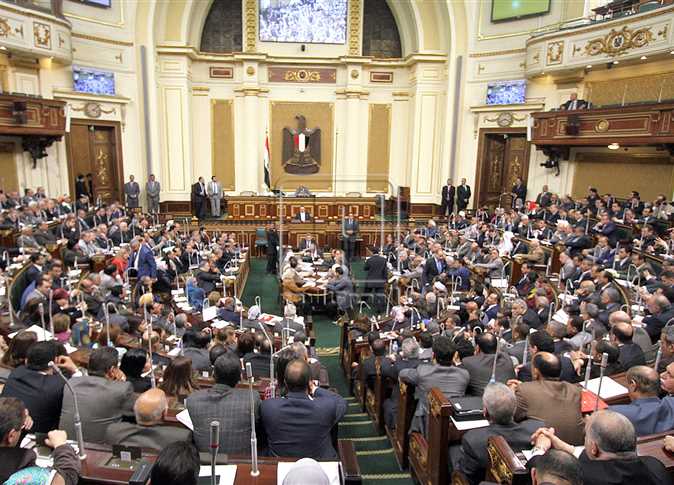“Upper Egypt is marginalized” is the conventional expression used whenever someone tries to explain Upper Egypt's social and political condition. The danger in this expression lies in the quest of the Egyptian state and the political elite to reduce the problems of Upper Egypt to marginalization. The real problem rests in how the police state and its authoritarian pronouncements transformed “marginalization" into an indignity for Upper Egypt and its residents.
The police state banned civil society from any political or union organizing and its security authorities prevented any interaction between the various sectors of society. This by and large maintained a state of emergency, in which social conflict became undisciplined, lacking in awareness, violent and frustrating. The police state also contained tensions within the areas of sectarianism and crime, to the point that, while it legitimized its own authority and logic, society was deprived of opportunities for interaction and eventually self-discovery.
From here we can understand the danger of “marginalized Upper Egypt" as a notion that entraps Upper Egypt to legitimize the myth of its "abnormality". The police state scared the rest of the population with this myth of abnormality. Furthermore, the oppressors worked on sustaining the myth and using it to explain any violence or tribalism in the southern quarter of the nation.
Sustaining the myth of abnormality was demonstrated in resorting to traditional means of settling differences. It was also seen in the support of delegates of the police state who represented big families in the south and were implicated in all forms of crimes, from drug trafficking to fueling sectarian strife. This extensive network of interests formed by the police state managed to extend a worsening and dangerous condition in Upper Egypt. Here the marginalization of the south became a tool exploited by this network of mutual interests between the state and its clients, who claimed they are the only ones capable of handling the “abnormality” of the region. On the ground, the notion of “abnormality” was internalized.
The revolution arose to cut off the regime’s head and deal a fatal blow to the police state, and while the cities were rising up in the face of the police state, Upper Egypt continued to watch at a distance with a mixture of curiosity and fear. But many Upper Egyptian youth were inspired by the revolution and in turn organized smaller scale actions in the south, while thousands of others marched to Tahrir Square to join the “urban” revolution. Yet the broad masses of Upper Egypt remained skeptical and cautious; their “unique situation” and awareness of their “abnormality” kept them from joining the revolutionary fervor.
Undoubtedly, the revolution destabilized the south, as the central authority upon which everything was balanced fell, subsequently threatening the positions of the traditional power players.
Today, resistance to this destabilization persists. Members of the dissolved National Democratic Party (NDP) in Upper Egypt have made violent moves, threatening to mastermind mass chaos following news that a Treachery Law might exclude them from the political landscape.
It is important to understand that this is a message to the people of Upper Egypt who have also turned against the criminal figures of the NDP and tribalism. And although tribalism constitutes an important pillar for power in Upper Egypt, it is nonetheless full of contradictions and flawed by conflicts, disputes and general deterioration. A thread of modernization has undoubtedly undermined the influence of once-prevalent tribalism.
All this shows the main problem as the authorities' conscious branding of Upper Egypt through its “abnormality” and “marginalization”, while simultaneously intimidating its residents. Following the uprising, the door opened wide for the struggle between these traditional oppressive forces hoping to steer Upper Egypt away from any change.
This longstanding and dire legacy played an important role in the general lack of self confidence among the new activists of Upper Egypt and in the possibility of change. Moreover conventional forces are waging a relentless campaign to conquer any revolutionary tendencies. But there is no doubt these forces feel threatened and confused since the police state fell.
In spite of the severe difficulties facing the revolutionary youth coalitions, they are making a courageous and solid effort. Perhaps the Qena Youth Coalition’s protest and chants against the armed organizers of a conference held by the remnants of the NDP in Naga Hammadi is proof of how serious this confrontation is and how courageous the revolution is.
Recently Upper Egypt has become the site for widespread protests, and despite the fierce skepticism campaign questioning the strength of these actions, the wave of strikes continued in the sugar mills, aluminum factories, in the gas company, and among the ranks of professionals as represented in the teachers’ strike.
Up until now, the youth coalitions and continuous strikes have been the pillars of the revolutionary fervor. The support of these movements is the only way to create a revolutionary tributary in Upper Egypt which can resist the persistent traditional oppressive forces and alter residents’ rebellious nature. Only then will the notion of “marginalization” be demystified.




